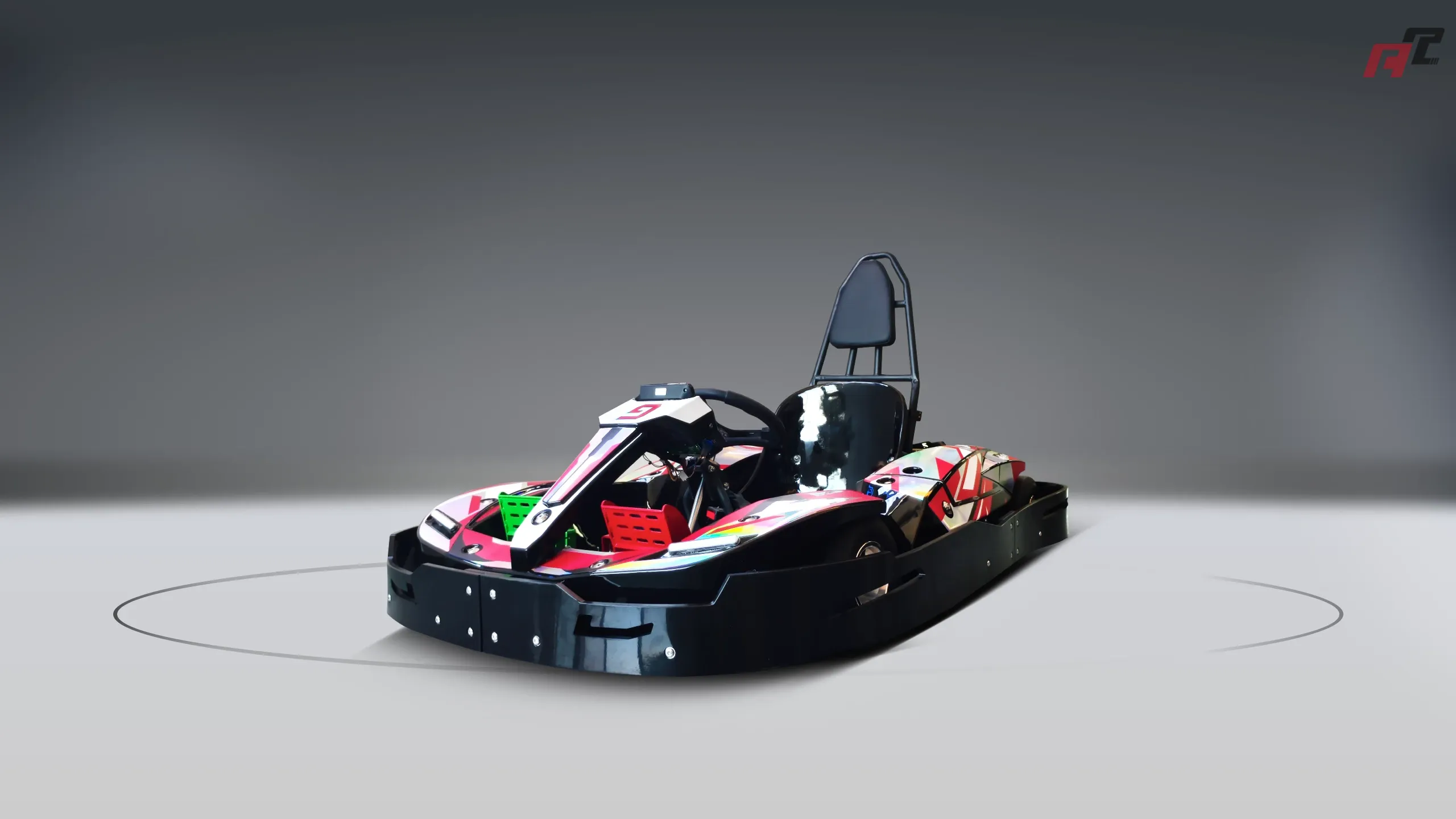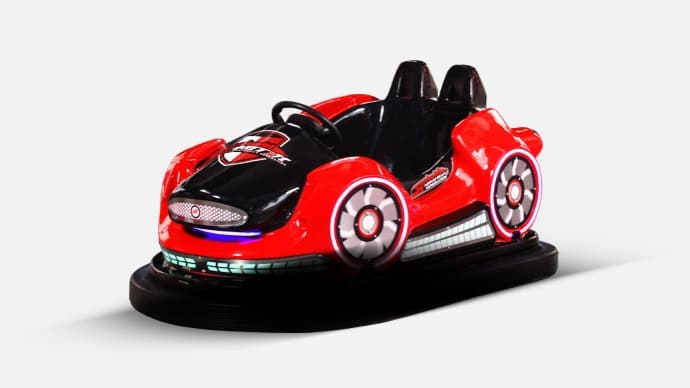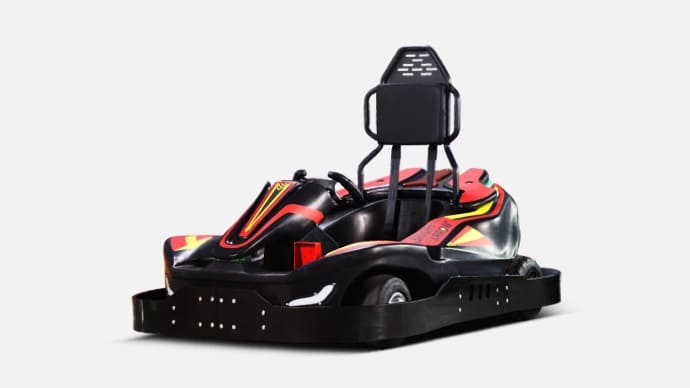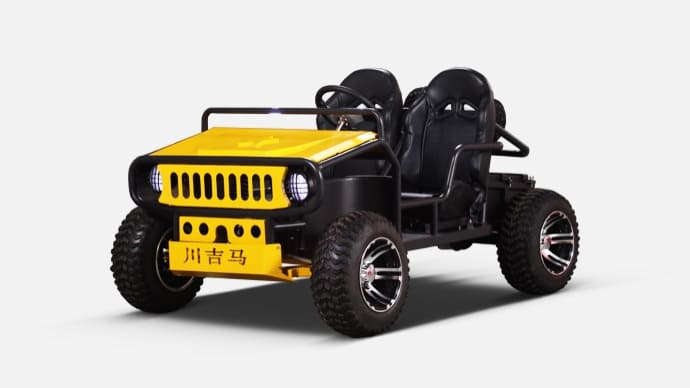Eco-Friendly Benefits of Battery Bumper Cars for Parks
- Eco-Friendly Benefits of Battery Bumper Cars for Parks
- Introduction: Why Battery Bumper Car Matters for Modern Parks
- Zero Tailpipe Emissions: Cleaner Air for Guests and Staff
- Lower Noise Levels: Better Ambience and Prolonged Operating Hours
- Reduced Operational Costs: Energy Efficiency and Simpler Service
- Maintenance Advantages: Fewer Moving Parts, Easier Upkeep
- Energy Source Matters: Cleaner Electricity Means Lower Lifecycle Emissions
- Guest Perception and Marketing: Sustainability Sells
- Space and Installation Flexibility: Faster, Safer Deployment
- Comparing Options: Battery Bumper Car vs. Alternatives
- Battery Technology and Durability: Realistic Expectations
- Charging Infrastructure: Best Practices for Parks
- Health, Safety, and Compliance: Meeting Regulations
- ROI and Long-Term Value: How Parks Gain Financially
- Why Choose ANCHI Amusement for Battery Bumper Car Solutions
- Implementation Steps: From Evaluation to Opening Day
- FAQ: Common Questions About Battery Bumper Cars
- Are Battery Bumper Car units safe for indoor use?
- How long do batteries last in a typical bumper car?
- Can parks charge vehicles using solar energy?
- Do battery bumper cars require special maintenance training?
- How do I get a quote or learn more?
Eco-Friendly Benefits of Battery Bumper Cars for Parks
Introduction: Why Battery Bumper Car Matters for Modern Parks
Battery Bumper Car attractions are increasingly popular as parks pursue sustainability and better guest experiences. These battery-powered amusement vehicles eliminate the need for overhead power grids or fossil fuel engines on-site, offering cleaner operation, quieter rides, and simpler installation. For park operators who want to combine entertainment with environmental responsibility, Battery Bumper Car investments make clear business and ecological sense.
Zero Tailpipe Emissions: Cleaner Air for Guests and Staff
Battery Bumper Car units run on rechargeable batteries and produce no tailpipe emissions during operation. That means parks avoid localized exhaust pollutants such as NOx, CO, and particulates that are common with internal-combustion engines. For indoor arenas, family venues, and densely populated parks, switching to Battery Bumper Car fleets improves air quality, aligns with local clean-air regulations, and makes attractions more family-friendly.
Lower Noise Levels: Better Ambience and Prolonged Operating Hours
Compared with gasoline or diesel-powered alternatives, Battery Bumper Car systems operate much more quietly because electric motors have smoother torque delivery and fewer mechanical components. Lower ambient noise enhances visitor comfort, reduces sound complaints from neighboring properties, and can enable parks to extend operating hours in noise-sensitive locations.
Reduced Operational Costs: Energy Efficiency and Simpler Service
Operating Battery Bumper Car fleets is often less expensive than running combustion-engine attractions. Electric drivetrains are more energy-efficient, and battery systems reduce the complexity of routine servicing (no oil changes or fuel-system maintenance). With proper charging practices and battery management, parks can lower labor and consumable costs over the vehicle lifecycle.
Maintenance Advantages: Fewer Moving Parts, Easier Upkeep
Battery Bumper Car designs typically feature fewer moving parts than gasoline equivalents — fewer fluids, no spark systems, and reduced vibration. This translates into predictable maintenance schedules, lower spare-parts inventory, and less downtime. Parks benefit from steadier throughput and a better guest experience during peak periods.
Energy Source Matters: Cleaner Electricity Means Lower Lifecycle Emissions
While Battery Bumper Car units have zero local emissions, their overall environmental impact depends on the electricity used for charging. Parks that charge from a grid dominated by renewable energy (solar, wind, hydro) achieve much lower lifecycle CO2 emissions. Many operators pair Battery Bumper Car installations with on-site solar arrays or green tariffs to maximize environmental benefits.
Guest Perception and Marketing: Sustainability Sells
Visitors increasingly look for eco-conscious operators. Advertising Battery Bumper Car attractions as low-emission, low-noise, and family-friendly helps attract environmentally minded guests and corporate clients. Clear messaging that highlights sustainability improvements can boost brand equity and repeat visitation.
Space and Installation Flexibility: Faster, Safer Deployment
Battery Bumper Car systems remove the need for complex power rails, conductive floors, or large fuel storage. That simplifies venue design and reduces installation timelines. Mobile or seasonal parks can deploy and remove battery units quickly, while indoor venues benefit from a cleaner, cable-free surface.
Comparing Options: Battery Bumper Car vs. Alternatives
Below is a practical comparison of Battery Bumper Car units, gasoline-powered bumper cars, and traditional wired-electric systems. Attributes are presented qualitatively to help operators make informed choices.
| Attribute | Battery Bumper Car | Gasoline/Diesel Bumper Car | Wired/Electrified Floor or Ceiling |
|---|---|---|---|
| Local Emissions | Zero tailpipe emissions | High (exhaust pollutants) | Zero tailpipe emissions (power from grid) |
| Noise | Low | High | Low |
| Installation Complexity | Low to medium (charging infrastructure) | Low (fuel handling) | High (power grid or conductive floor/ceiling) |
| Operating Cost | Typically lower (energy + maintenance) | Higher (fuel + frequent maintenance) | Variable (depends on energy source) |
| Maintenance | Lower (fewer moving parts) | Higher (engines, fluids) | Moderate (electrical systems upkeep) |
| Flexibility | High (portable, modular) | Moderate | Lower (fixed infrastructure) |
Battery Technology and Durability: Realistic Expectations
Modern Battery Bumper Car fleets commonly use lead-acid or lithium-ion batteries. Lithium chemistries typically offer longer cycle life, faster charging, and lower weight, while sealed lead-acid batteries remain common where lower upfront costs are prioritized. Proper charging practices, temperature control, and battery management systems extend lifespan. Operators should budget for battery replacement as a predictable lifecycle cost and select chemistries aligned with usage patterns and ROI goals.
Charging Infrastructure: Best Practices for Parks
Well-planned charging reduces energy costs and extends battery life. Best practices include: using smart chargers that prevent overcharging, scheduling charges during off-peak hours to lower electricity costs, monitoring state-of-charge with fleet management software, and considering on-site renewables. For high-throughput parks, staggered charging stations and spare batteries can keep operations running without interruption.
Health, Safety, and Compliance: Meeting Regulations
Battery Bumper Car operations must follow safety standards for battery handling, charging areas, and emergency procedures. Proper ventilation, spill containment for lead-acid batteries, and trained staff reduce risks. Many markets have standards for amusement device safety and electrical installations — compliance protects guests and reduces liability.
ROI and Long-Term Value: How Parks Gain Financially
While Battery Bumper Car fleets often have higher upfront costs than some wired or used alternatives, they deliver long-term value through lower fuel and maintenance expenses, reduced staffing for mechanical repairs, and enhanced guest satisfaction. When paired with renewable energy or off-peak charging, parks can see notable reductions in operating expenses and shortened payback periods. A careful total-cost-of-ownership (TCO) analysis will include purchase price, energy use, maintenance, battery replacement, and expected revenue uplift from improved guest perception.
Why Choose ANCHI Amusement for Battery Bumper Car Solutions
ANCHI Amusement is a leading manufacturer of amusement equipment in China, integrating bumper cars, go-karts, off-road vehicles, R&D, production, sales, and after-sales service. With over 5,000 square meters of production space, multiple assembly lines, and a team of more than 30 skilled technicians, ANCHI designs and manufactures battery-powered bumper cars that meet safety, reliability, and eco-friendly operation needs. In addition to custom manufacturing, ANCHI provides venue design services — from concept to execution — to help parks install efficient Battery Bumper Car attractions under their own brand. Learn more: https://www.anchiamusement.com/.
Implementation Steps: From Evaluation to Opening Day
To deploy Battery Bumper Car attractions successfully, parks should: 1) conduct a site assessment (space, power availability, ventilation), 2) choose an appropriate battery chemistry and charger specification, 3) plan charging logistics and backups, 4) train staff on battery safety and routine maintenance, and 5) promote the eco-benefits as part of marketing. Working with a full-service supplier like ANCHI streamlines these steps and reduces time-to-open.
FAQ: Common Questions About Battery Bumper Cars
Are Battery Bumper Car units safe for indoor use?
Yes. Battery Bumper Car vehicles designed for indoor use produce zero tailpipe emissions and have low noise. Proper charging area setup, ventilation for battery rooms (if using lead-acid), and adherence to manufacturer safety guidelines ensure safe indoor operation.
How long do batteries last in a typical bumper car?
Battery life depends on chemistry, usage intensity, and maintenance. Lithium-ion batteries usually offer longer cycle life and faster charging, while sealed lead-acid batteries have shorter cycle lives but lower upfront cost. With proper charging and care, battery packs can serve several seasons before replacement is needed.
Can parks charge vehicles using solar energy?
Yes. Many parks pair Battery Bumper Car fleets with on-site solar or green energy programs to reduce lifecycle emissions and energy costs. Solar plus smart-charging systems can significantly lower grid electricity use and improve sustainability credentials.
Do battery bumper cars require special maintenance training?
Maintenance requirements are generally simpler than combustion engines, but staff should be trained on battery handling, charger operation, and routine inspections. Suppliers like ANCHI provide training and after-sales support to ensure safe, efficient operation.
How do I get a quote or learn more?
Contact ANCHI Amusement through their website (https://www.anchiamusement.com/) to request product specifications, customization options, venue design services, and quotes for Battery Bumper Car fleets. ANCHI can advise on battery choices, charging setups, and ROI planning based on your park's needs.
Everything You Need to Know About Bumper Car Business with ANCHI
Everything You Need to Know About custom go kart builders
Wholesale electric go kart canada manufacturer and supplier
Best Custom Go Karts in Washington - Experience ANCHI
About Customized Service
How long does customized service take?
The time for customized services depends on your specific needs and order volume. Generally speaking, we will provide you with customized solutions as soon as possible.
About Product Choice
Can I customize special specifications or packaging?
Yes, we provide customized services, you can customize special specifications, packaging and private label etc. according to your needs.
About Price and Payment
How can I obtain pricing information for your customized amusement ride equipment?
Pricing varies based on customization scope, project scale, and specific requirements. Contact our sales team for a personalized quote tailored to your desired features and budget considerations.
What payment methods are available?
We accept a variety of payment methods, including bank transfer, credit card payment, PayPal, etc.
About Cooperation Process
What information do I need to provide to start the cooperation process?
You need to provide your company information, product needs, venue information, customization requirements, cooperation intentions and other relevant information.

Cyclone RS 2025 1200W Electric Go-kart for Home Entertainment Centers
The Cyclone RS 2025 is a high-performance electric ride-on car designed for thrill-seekers, entertainment centers, and commercial amusement businesses. Built with a durable ABS body and reinforced metal chassis, it combines strength, safety, and speed for a superior driving experience. With a 1200W mid-mounted motor (peaking at 3600W), advanced control system, and long-lasting 72V20AH LiFePO₄ battery, this ride ensures both powerful performance and reliability.
Whether for amusement parks, game zones, rental businesses, or personal recreational use, the Cyclone RS 2025 delivers unmatched excitement and durability.

Kids Electric Off Roads One-seater ATV
Discover adventure with the ANCHI Kids Electric One-seater ATV, the perfect electric off-road experience for young explorers. Designed for safety and performance, this electric off-road go kart for kids offers unmatched thrills on any terrain. Its durable build and easy-to-use controls ensure a fun and safe ride. Ideal for budding adventurers, this ATV promises endless excitement. Explore the world with confidence with ANCHI’s innovative electric off-road solutions for kids.

Battery Drift Bumper Car With inflatable tyre
The Battery Drift Bumper Car with Inflatable Tire with 650W steel gear motor, and high quality battery wich can becharged outside the car, the bumper car is ideal for amusement parks, family entertainment centers, build quality for safe, long-lasting fun.

Spaceship Laser Battle Bumper Car
Discover the future of fun with the ANCHI Spaceship Laser Battle Bumper Car! Designed for thrill-seekers, this kids bumper car offers an exhilarating laser battle experience. Parents and children alike will enjoy hours of safe, exciting play. Ideal for parties or everyday fun, it combines durability with innovative technology.










